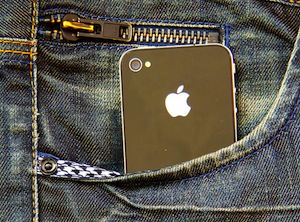Forget ‘Cellphone,’ That’s a ‘Tracker’ in Your Pocket
Mobile phone service providers collect user information and share it with the government, to the tune of at least 1.3 million disclosures per year. What if our nomenclature reflected that?
Mobile phone service providers collect user information and share it with the government, to the tune of at least 1.3 million disclosures per year. What if our nomenclature reflected that?
Peter Maass and Megha Rajagopalan, digital privacy reporters for ProPublica, argue that cellphones function primarily as tools for keeping tabs on their owners. And our best hopes for addressing the dangers inherent in that fact begin with calling them by their rightful name.
— Posted by Alexander Reed Kelly
Your support is crucial...Sunday Review at The New York Times:
Thanks to the explosion of GPS technology and smartphone apps, these devices are also taking note of what we buy, where and when we buy it, how much money we have in the bank, whom we text and e-mail, what Web sites we visit, how and where we travel, what time we go to sleep and wake up — and more. Much of that data is shared with companies that use it to offer us services they think we want.
We have all heard about the wonders of frictionless sharing, whereby social networks automatically let our friends know what we are reading or listening to, but what we hear less about is frictionless surveillance. Though we invite some tracking — think of our mapping requests as we try to find a restaurant in a strange part of town — much of it is done without our awareness.
“Every year, private companies spend millions of dollars developing new services that track, store and share the words, movements and even the thoughts of their customers,” writes Paul Ohm, a law professor at the University of Colorado. “These invasive services have proved irresistible to consumers, and millions now own sophisticated tracking devices (smartphones) studded with sensors and always connected to the Internet.”
As we navigate an uncertain 2025, with a new administration questioning press freedoms, the risks are clear: our ability to report freely is under threat.
Your tax-deductible donation enables us to dig deeper, delivering fearless investigative reporting and analysis that exposes the reality beneath the headlines — without compromise.
Now is the time to take action. Stand with our courageous journalists. Donate today to protect a free press, uphold democracy and uncover the stories that need to be told.





You need to be a supporter to comment.
There are currently no responses to this article.
Be the first to respond.